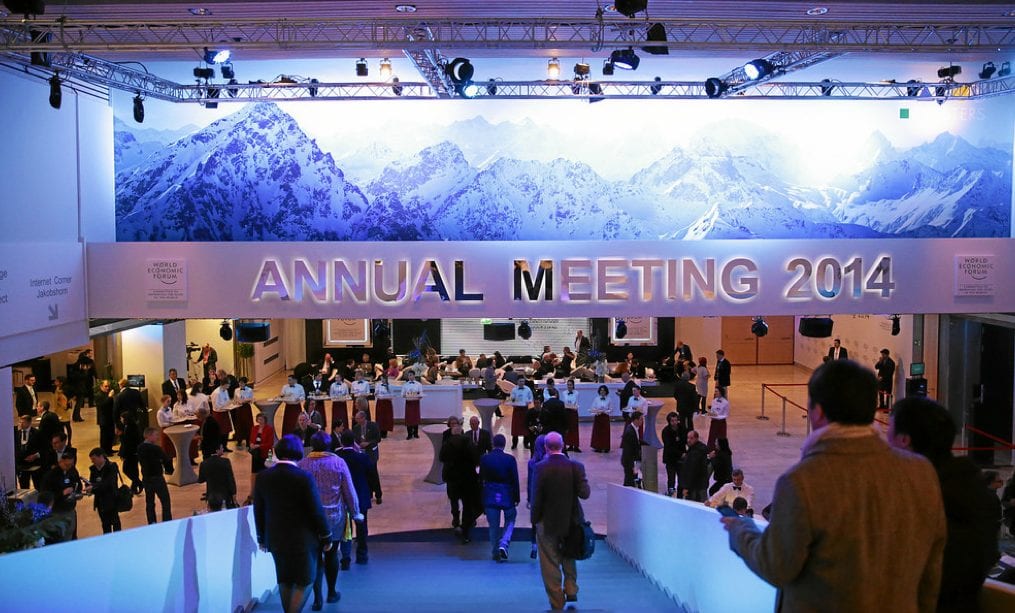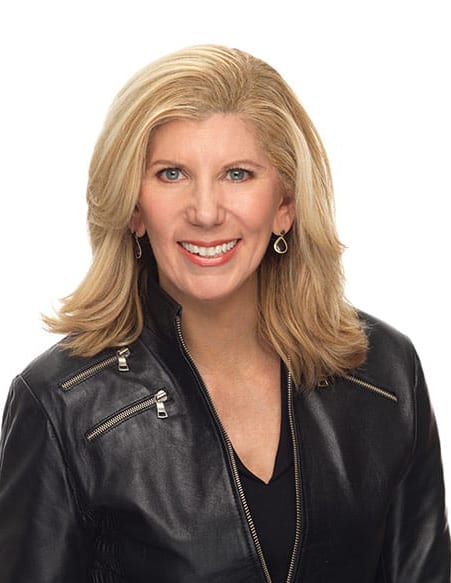Are you a spouse? (Click to tweet)
Yes, I was asked that question more than once during the World Economic Forum (WEF) in Davos. In fact, the number of female spouses attending the event makes the 15 percent number of official female attendees seem much larger than it is. (Click to tweet)
While bias still exists, being there as a female CEO does allow you to participate and shape the agenda — an experience I cherish.
 First and foremost on people’s minds was why there are still so few women. The attendance numbers are not shifting much despite WEF’s efforts to require supporting partners to send one female for every five attendees. There was talk about changing the language in quotas today to 20 percent, rather than saying a fifth must be a female, and more aggressively following up on why some companies only sent four delegates and did not work harder to find appropriate female representation.
First and foremost on people’s minds was why there are still so few women. The attendance numbers are not shifting much despite WEF’s efforts to require supporting partners to send one female for every five attendees. There was talk about changing the language in quotas today to 20 percent, rather than saying a fifth must be a female, and more aggressively following up on why some companies only sent four delegates and did not work harder to find appropriate female representation.
Facebook COO Sheryl Sandberg opened the women’s leadership dinner at WEF saying, “It is good to see women on the agenda at Davos but our goal is to get them off.” (Click to tweet) Women talked through dinner about continuing to be more vocal about the issues; to support and sponsor other women; to use their senior positions in both government and corporations to enact and approve policy change; and, to coach men and to raise their sons to be more aware.
The debate on quotas in companies and boards was prevalent as well. Europeans seem most comfortable with the process and it does seem to be making a difference there. The one thing there is clear agreement on is that we lose women after the middle ranks and need to work on senior succession planning across the board. The CEO of Tupperware, Rick Goings, said, “We need to create new paths for women rotating them into marketing and sales positions and teaching them to be operators.” (Click to tweet)
Getting more women elected to public office around the globe was also a “hot topic.” The cry for women to support women and the belief by many, including Phumzile Mlambo-NgCuka the Executive Director of United Nations Women, “that we would have a greater chance at peace with women engaged,” was repeated. There was also a feeling that, if women in countries with oppressive laws to women can get elected, they can help change those laws and enforce others designed to protect women from trafficking, mutilization, forced marriage, etc.
Society is still biased against women and the solutions discussed to remedy that don’t change. The topics of female literacy, access to advanced education, technology training, access to capital and addressing health needs are constant.
But there is hope. Based on what I heard at the event, it is clear that there is agreement across the board that gender parity is good for the economy. The women-focused sessions were more greatly attended by men this year and men were on every panel. There are also more people unafraid to be vocal, and if you are Christine Lagarde, managing director of the International Monetary Fund (IMF), bold enough to correct gender-bias comments in real time during discussions.
It is up to us to keep the momentum going. We all must put our heads together and take steps towards addressing this issue straight on. Talking about it is just the first step. Change begins now.
This post first appeared on CNBC.com.



